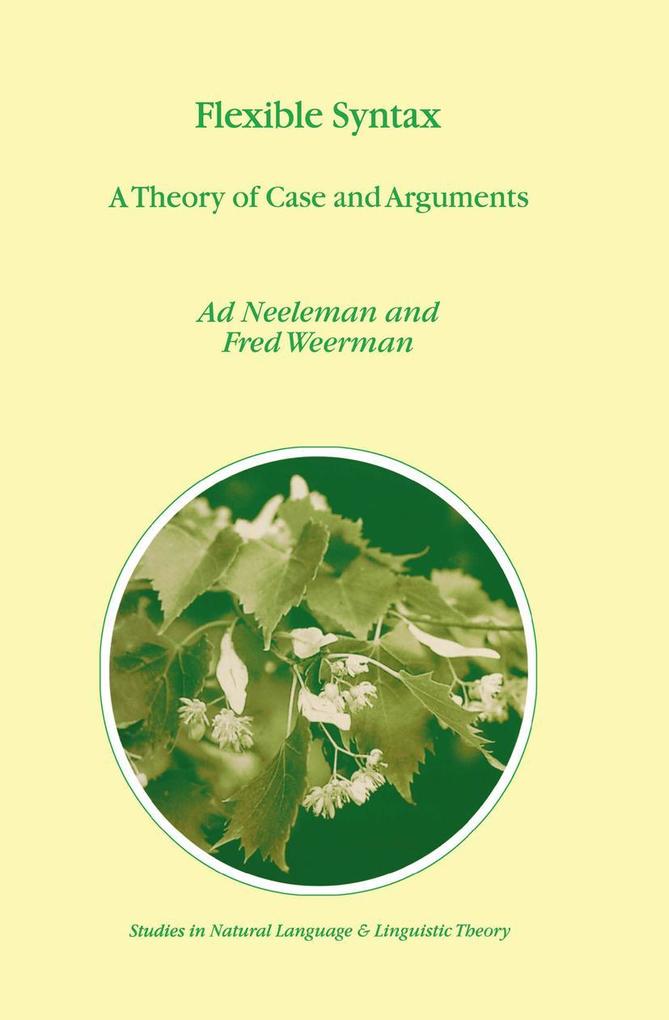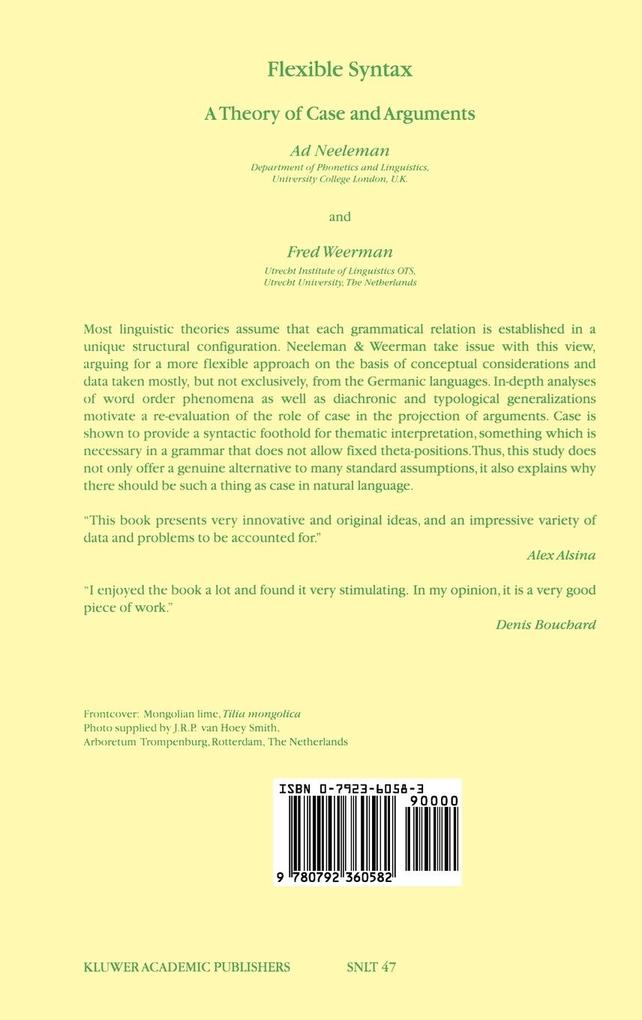Most linguistic theories assume that each grammatical relation is established in a unique structural configuration. Neeleman and Weerman take issue with this view, arguing for a more flexible approach on the basis of conceptual considerations and data taken mostly, but not exclusively, from the Germanic languages. In-depth analyses of word order phenomena as well as diachronic and typological generalizations motivate a re-evaluation of the role of case in the projection of arguments. Case is shown to provide a syntactic foothold for thematic interpretation, something which is necessary in a grammar that does not allow fixed theta-positions. Thus, this study does not only offer a genuine alternative to many standard assumptions, it also explains why there should be such a thing as case in natural language.
Inhaltsverzeichnis
1: Prologue. - 1. Introduction. - 2. Case Theory. - 3. ? -Theory. - 4. Word Order. - 5. Overview. - Bibliographical Note. - 2: The OV/VO Parameter. - 1. Introduction. - 2. The Domain of ? -role Assignment. - 3. The Domains of Head Government. - 4. The Formation of VP Shells. - 5. Particles. - 6. Scrambling. - 7. Double Object Constructions. - 8. Exceptional Case Marking. - 9. Concluding Remarks. - 3: Morphological Case. - 1. Introduction. - 2. Asymmetries between Nominative and Case. - 3. Syntactic Effects of Morphological Case. - 4. Toward a Theory of Case Features. - 5. Concluding Remarks. - 4: Prepositional Complements. - 1. Introduction. - 2. The Problem. - 3. Indirect ? -Role Assignment. - 4. LF Incorporation. - 5. Empirical Consequences. - 6. PP Complements to Nouns. - 7. Concluding Remarks. - 5: Raising to Subject. - 1. Introduction. - 2. ? -Role Promotion as A -Movement. - 3. NP Raising as Null Operator Movement. - 4. Short versus Long Null Operator Movement. - 5. Improper Movement. - 6. Concluding Remarks. - 6: Head Marking. - 1. Introduction. - 2. Head-Marking Affixes. - 3. Absolutive-Ergative Languages. - 4. VSO Languages. - 5. The Linearization of Subjects. - 6. Concluding Remarks. - 7: Epilogue. - 1. Introduction. - 2. Falsifiability. - 3. Flexibility. - References.













